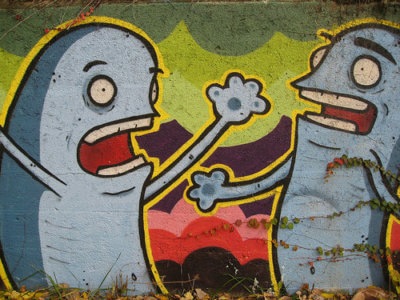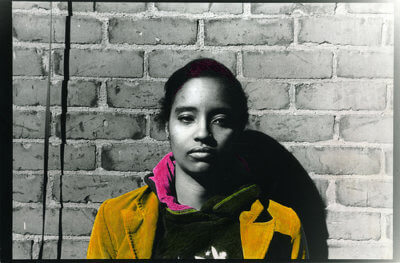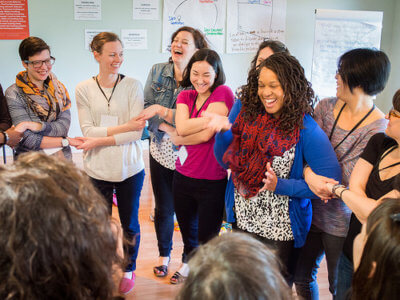What is Relational Therapy and Can It Help You?

By: soupstance
by Andrea M. Darcy
- Often find that your relationships are affecting your mood?
- Are you anxious when it comes to social situations like the workplace?
- Or do you have a tendency to push people away even if you want them to like you?
Relational therapy might be for you.
What is relational therapy?
Arising from the psychodynamic approach, relational therapy believes that to feel good about ourselves and our lives we need to have good relationships with others.
If we are depressed or anxious, inevitably it can be traced back to tension or breakdowns in relationships, or an inability to connect.
This might be our relationships with family, colleagues, partners, or all of the above.
Relationship therapy looks at how your background and past experiences are causing you to relate to others in unhelpful ways that leave you unhappy. How can you find freedom from past destructive relationships, and find new ways of interacting with others that make you feel better about yourself and your life?
[Not sure if you are in a destructive relationship? Try our free quiz, “Are You in a Good Relationship, or Time to Worry?“. ]
Key concepts of relational therapy
Here are some of the concepts that your relational therapist will be working from, and how it can help you.
1. Connection matters.
Emotional and psychological wellbeing requires that we have balanced, trusting, and satisfying relationships with others. We need to feel connected.
Relational therapy helps you ask, how is it that I relate to others? How do I try to connect, is it working, and if not, why not?
2. Disconnection leads to mental health issues.
If we constantly sabotage connection it results in distress and things like depression, anxiety, and disorders.
Relational therapy helps you recognise the strategies for disconnection you are unconsciously using around others. How are they constantly leaving you upset and lonely?

By: damon brunson
3. Authenticity is key.
We need to learn how to be ourselves in relationships for them to be successful.
Who is the real you, and how would your relationships change if you bought that forward?
4. The past informs our present.
Past relationships determine the assumptions we make about our present day and future relationships. And what we learned in the past affects the way we act around others in the present.
Where did you learn the perspective you see all relationships from? Is it true? How would your relationships be if you stopped making assumptions?
5. Social and cultural factors affect your ways of being around others.
Unlike other forms of therapy, relational therapy puts a focus on how things like culture, race, class and gender are affecting the power dynamics between you and other people.
Does you social and cultural background mean you are not giving others a chance? Or are assuming they won’t give you one? How is this causing you problems and upset?
6. The relationship that develops between the client and therapist is very important.
The ‘therapeutic alliance’ you have with your therapist can work as a model for you of how you might heal other relationships in your life, as well as a safe space to try new ways of relating.
How can you know when to trust? And what would happen to your relationships if you were are open and relaxed with others as you are beginning to be with your therapist?
The benefits of relational therapy
Perhaps one of the best ways to understand ‘what is relational therapy?’ would be to look at what it aims to deliver to clients.
Benefits can include:
- more mental and emotional energy
- more motivation within relationships and life itself
- less power struggles with others
- more satisfying relationships
- stop pushing people away
- develop your ability to trust
- raised self-esteem
- better self-understanding.
How is relational therapy different than other forms of therapy?

By: Eugene Kim
Relational therapy is the same as many forms of talk therapy as it’s concerned with how your past experiences are negatively affecting your ways of being in the present, and how you can feel more connected to others.
But it’s different than some more traditional talk therapies because:
- it focuses just on the way you relate
- it attributes stress, anxiety and depression to an inability to connect well with others
- it takes into account social and cultural factors
- it puts a very strong emphasis on the client-therapist relationship.
What sorts of issues can relational therapy help with?
The following are all issues relational therapy could be helpful for:
- anxiety
- body dysmorphia
- depression
- stress
- relationship issues
- loneliness
- low self-esteem
- eating disorders
- social anxiety
- trust issues
- workplace issues.
Would you like to try relational therapy? Harley Therapy now connects you with professional registered therapists across the UK and globally via online therapy.
 Andrea M. Darcy is a mental health and wellbeing expert, who didmtraining in person-centred counselling and coaching. She often writes about trauma, relationships, and ADHD, and advises people on how to plan their therapy journey. Find her on Instagram @am_darcy
Andrea M. Darcy is a mental health and wellbeing expert, who didmtraining in person-centred counselling and coaching. She often writes about trauma, relationships, and ADHD, and advises people on how to plan their therapy journey. Find her on Instagram @am_darcy




